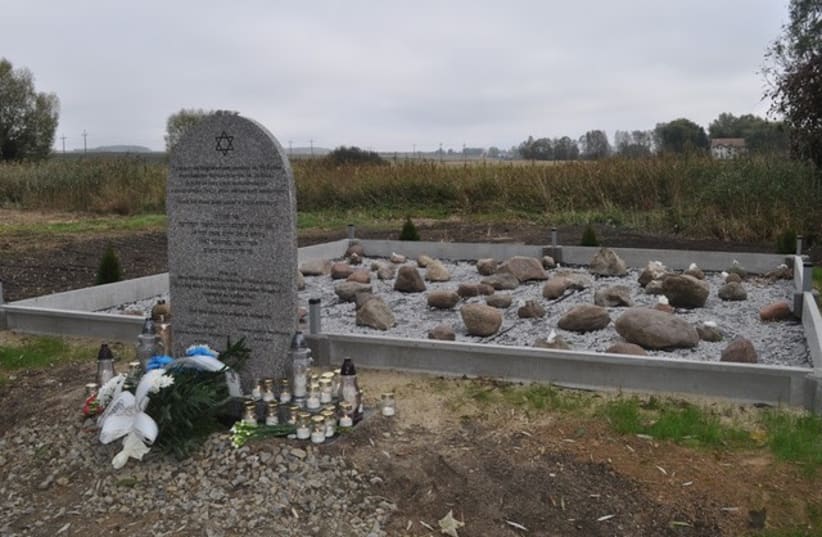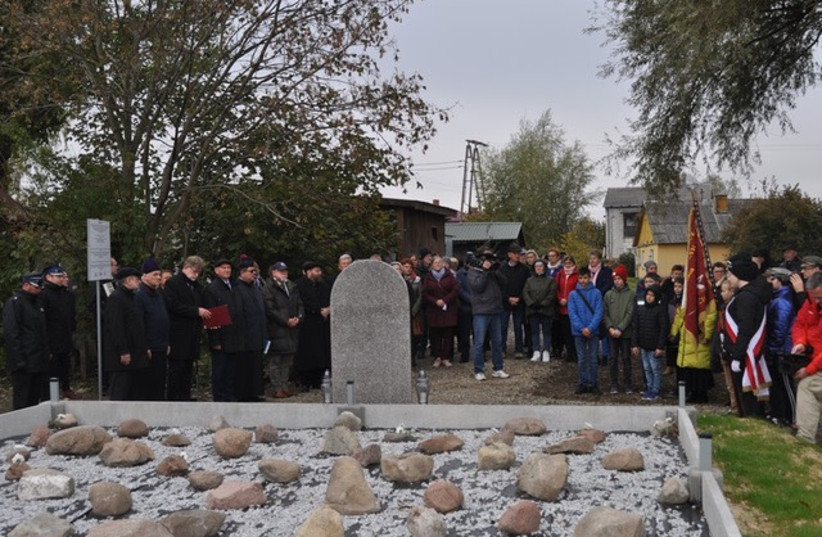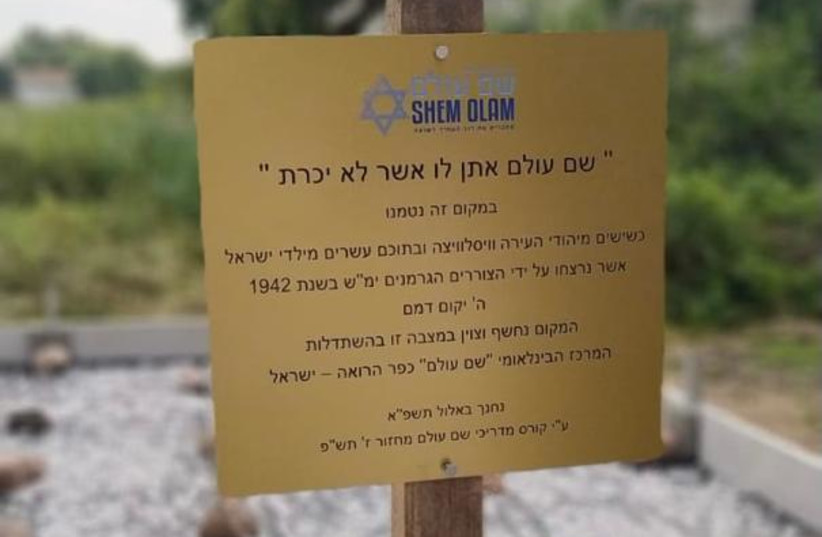In August, Israel recalled its ambassador to Poland following the approval of law which to practically ended claims for property restitution and compensation for property confiscated by Poland’s Communist regime in the 1940s and 1950s, including that of Holocaust survivors.
Prime Minister Naftali Bennett called the law “shameful, while Foreign Minister Yair Lapid described the law as “antisemitic and immoral,” and alleged that Poland had become “an anti-democratic, non-liberal country that does not honor the greatest tragedy in human history.”
Relations remain fraught and full diplomatic relations are yet to be restored following this intense disagreement.
But amid this unprecedented crisis between the two governments, on the ground in Poland efforts to commemorate the Holocaust and the country’s lost Jewish community abound.
Chief Rabbi of Poland Michael Schudrich says that in the last few months he has attended numerous events and ceremonies in which Jewish mass graves from the Holocaust have been demarcated, anniversaries of the deportation of Jews from ghettos in Polish towns and cities marked, and pre-war Jewish cemeteries which have fallen into neglect demarcated.
Indeed, he says he cannot remember a time when so many events of this nature have taken place.
Recent ceremonies include the commemoration of the liquidation of the ghetto in Mińsk Mazowiecki on August 22; the demarcation of a pre-war Jewish cemetery in the town of Orla on September 23; and a street naming ceremony on October 1 in Warsaw for Rabbi Dow Ber Meisels, a 19th-century chief rabbi of, first Krakow and then Warsaw, and a proponent of Polish independence.
On October 12, a plaque at a pre-war Jewish cemetery in the town of Tuszin was unveiled; on October 14 a Jewish mass grave from the Holocaust in the village Wojslawice was demarcated after residents approached the Rabbinic Commission for Cemeteries to mark the spot; on October 18 a monument was put up at the site of a mass grave in Adampol where 600 Jews were murdered in the Holocaust; while another mass grave is set to be demarcated on October 22 in Stromiec.
“Local memory has remembered these Jews,” said Schudrich, who notes that such events are taking place all over the country in big cities, towns, and in far-flung, rural villages.
“Yes, there were Poles who collaborated, but there were also many Poles who were friends with Jews and miss their neighbors.”
The rabbi says that at many of the ceremonies which he attends he is approached by locals who relate a story of their recollections of former Jewish neighbors who they went to school with, were friends with, or with whom they were otherwise acquainted.
Schudrich says that over the last five years the Rabbinic Commission for Cemeteries has identified and commemorated 70 mass graves.
Most communities are open to such commemoration, although problems are sometimes encountered, says the rabbi.
The rabbi said he did not think the increase in such events had any particular relation to the diplomatic crisis with Israel, but said it was encouraging that such commemorations were continuing despite the troubled Poland-Israel relationship.
“It shows that while there is a serious problem on the political level, in terms of Jewish memory and Holocaust memory, things are strong when a town or city says ‘we want to remember Jews who were here and what happened to them in the Holocaust,’” he said.
At the same time, however, antisemitic discourse in the country has heightened and sharpened, particularly over the restitution law, but also previously with a toxic presidential election in 2020 and over the 2018 national remembrance law that at one stage criminalized associating Poland with responsibility for the Holocaust before it was amended.
Schudrich acknowledges that there has been an increase in antisemitic discourse specifically over the restitution issue, but asserts that while some of it emanates from true antisemites, other aspects of the debate stem more from a severe reluctance to confront the fact that Poles did commit crimes against Jews during the Holocaust.


